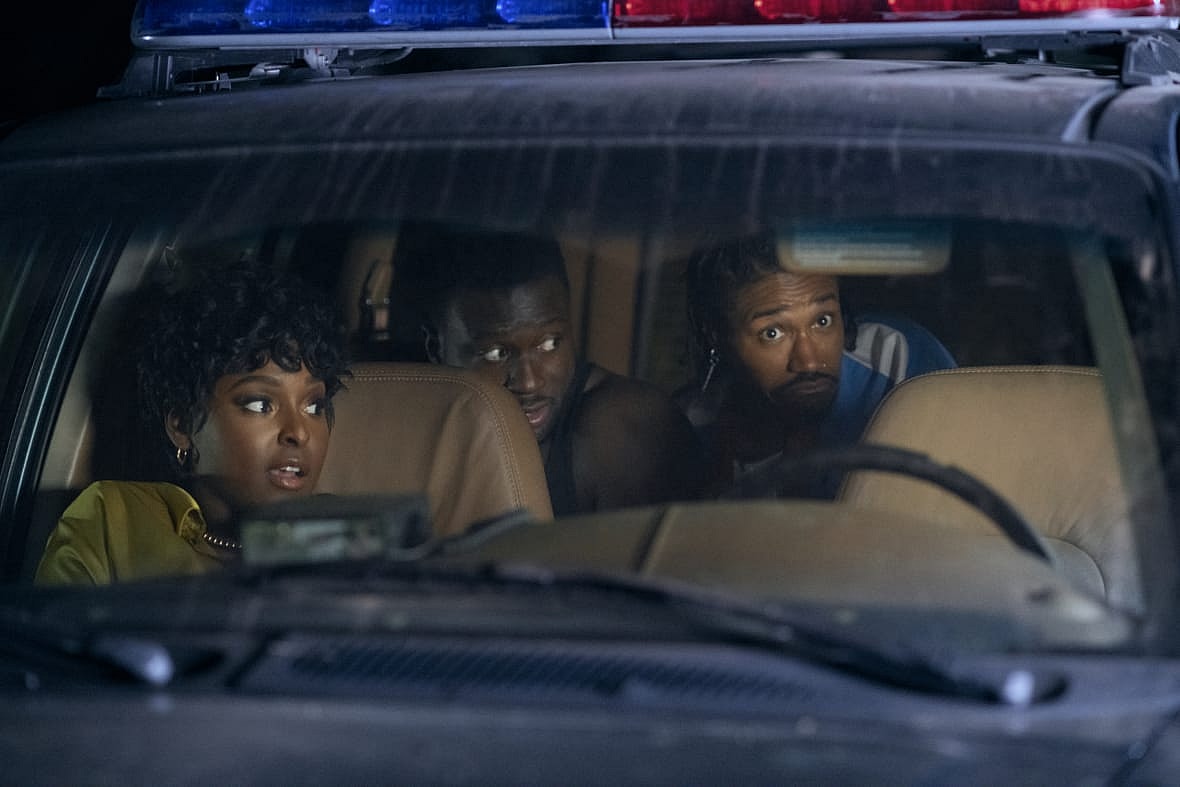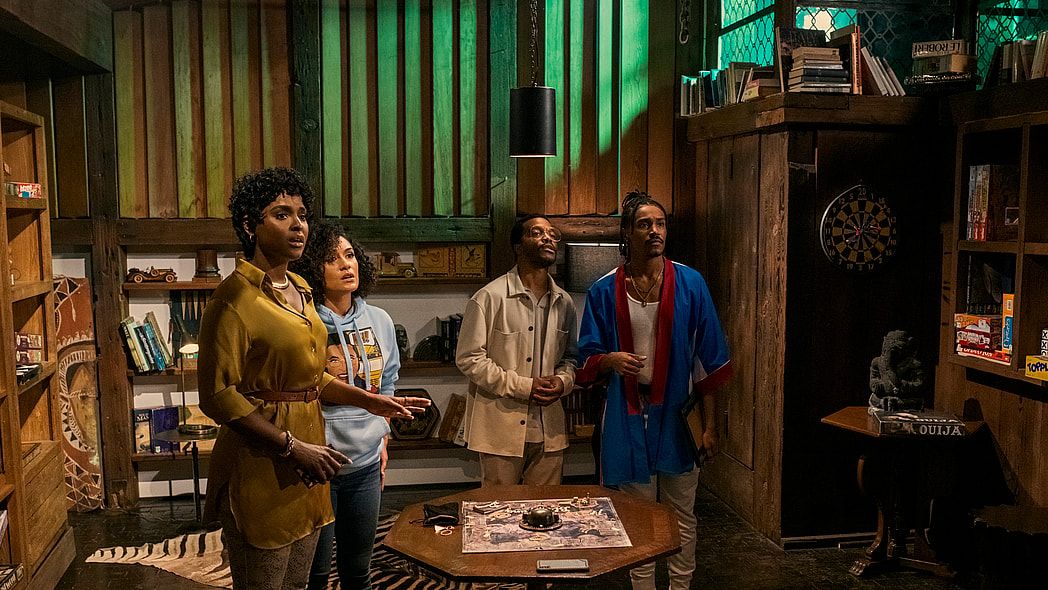Editor’s note: The following article is an op-ed, and the views expressed are the author’s own. Read more opinions on theGrio.
When I say I love being Black, I’m not just talking about my individual lived experience. There’s just something special about being Black on one accord with other Black people. Being Black is best done in community. The warmth of laughing, joking, dancing, playing and being in on the same, shared culture is a life-extending joy. But whew, is it cold — and sometimes deadly — being on the outside.
That’s the thesis of director Tim Story’s new horror-comedy “The Blackening,” a Juneteenth movie that hits theaters June 16 just in time for the Blackest holiday in America. Written by “Girl’s Trip” writer Tracy Oliver and “The Amber Ruffin Show” writer Dewayne Perkins, “The Blackening” follows a group of college friends who decide to reunite for the holiday 10 years after graduating. Shenanigans ensue when they find themselves trapped inside their Airbnb cabin in the woods (clearly the least Black place to vacation) with a murderer targeting them.
It all started as fun and games: Spades, to be exact. Who knows how we turned a racial slur into a card game that’s a cornerstone of Black American culture, but it’s both a testament to our tradition of survival and how deeply unserious we can be. Knowing how to play — and not renege — is so foundational to (a subset of) the Black experience that, we joke, you can have your “Black card revoked” if you don’t. The crew sets their reunion off by drinking red Kool-Aid and liquor and playing the card game until the lights go out and they discover a board game set up in another room called “The Blackening.”
The centerpiece of the board game is an incredibly racist toy Sambo head that talks, instructing the players to answer Black trivia or have their Black cards literally revoked — i.e. a crossbow to the throat. When the gang realizes that two of their friends have already been murdered, the rest have no choice but to play along and prove their Blackness in order to survive the night.
The hilarious questions range from knowing how long dark-skinned Aunt Viv was on “The Fresh Prince” before being replaced by light-skinned Aunt Viv to knowing the second verse to “Lift Ev’ry Voice and Sing.” The increasing difficulty and offensiveness of the questions and the Black stereotypes they’re rooted in effectively prove how subjective and varied being Black is — and how terrifying it is when the person deciding what is and isn’t “Black enough” wants to kill you.
But don’t worry; this comedy is not a defense of the Black folks who — as full-grown adults — still whine about not being “accepted” by the Black community. If anything, it’s a skewering of the adults who can’t let years-old playground teasing (that everyone experiences at some point!) go, and refuse to go find community with the many, many Black people who probably enjoy the same things they do. And while there are a litany of jokes in the film that you just won’t understand if you’re not entrenched in Black Xennial American pop culture (seriously, brush up on Nas’ “One Mic” so you can fully appreciate one of the film’s best jokes!) — one of the most genius things (besides the reason why this group is being hunted down) is how the film shows both our shared experiences and how anti-Black it is to make us into a monolith.
One of the film’s best gags is turning that shared Black understanding — that look two Black strangers give each other when white nonsense is afoot, for example — into full-on telepathy that even the “least Black” person can get in on. And I’d be remiss not to mention the best Black Woman’s Rage moment I’ve seen onscreen in a while. “Why Black women got to save everyone all the gatdamn time?!” Absolute perfection.

My one critique would be the use of ableism as a shortcut to identifying a villain. Whoever decided centuries ago that physical disabilities are signs of spiritual unwellness has been dead for a long time and should’ve taken that trope with him. It’s just so unnecessary in a film with so much brilliant nuance, like when the gang brainstorms which state authorities to call for help who won’t just kill them on sight. (“Park rangers have guns now?!”)
While the film certainly leans into its comedic premise, it doesn’t skimp on the horror. From classic jump scares and misdirects to a horrifying car scene and running for your life through the woods, “The Blackening” combines all of the best tropes of the genre to make an instant Juneteenth classic that will make you so happy to be Black — or wish you were Blacker.

Brooke Obie is an award-winning critic, screenwriter and author of the historical novel “Book of Addis: Cradled Embers.”.
TheGrio is FREE on your TV via Apple TV, Amazon Fire, Roku, and Android TV. Please download theGrio mobile apps today!


